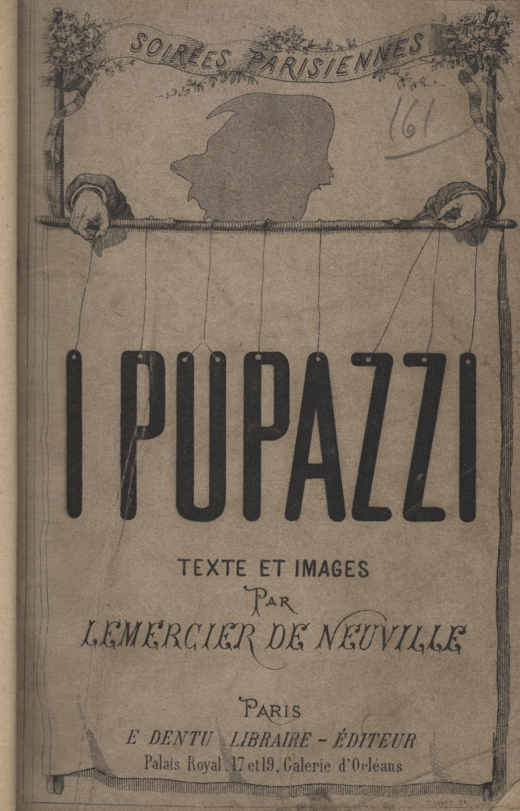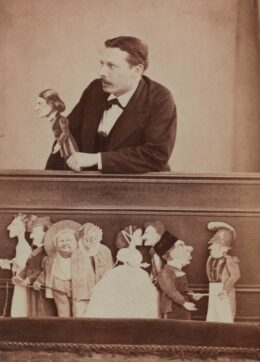
Printed
21 pages
Author(s)
Le Camp de Saint-Maur
The play Le Camp de Saint-Maur (Saint-Maur Camp) is part of the volume I Pupazzi published in 1866 and which is mainly composed of monologues (satirical and comical) in verses, each devoted to a different personality. The author notes that it is a book made of contemplations, portraits of personalities and accounts of recent events, in which he proves his talent as an impersonator. The articulated silhouettes of the Pupazzi were faithful portraits of celebrities from the time; he gently mocked their appearance or intellectual character.
Lemercier de Neuville directed his hand-puppet booth alone, as an author, painter, set designer and stagehand. The Pupazzi first met with success during the evening of December 28, 1862 in the workshop of the photographer Étienne Carjat. The name Pupazzi was created that evening by accident, and is not related to Italian puppet theatre. The first performances used articulated silhouettes. A year after the performance of the Pupazzi on May 10, 1864, the painter Gustave Doré suggested for Lemercier de Neuville to start using glove-puppets and to add dialogues to his texts.
The comic of the play is based on, on the one hand, colonialist clichés (the use of the pidgin language “petit-nègre” known as Français Tirailleur), and on the other hand, on the bourgeois’ ignorance and fear regarding the colonial troupes.
An unsuccessful journey
Two families, the Gobards and the Courbemanches, are driving to visit the military camp in Saint-Maur. On the way, they notice an accident, which sparks their conversation. When they arrive, they meet a Zouave and start talking with him. Later, they go to the camp of the Turcos (African infantrymen) and meet the Tambour-major (Drum major). They are asked to go to dinner: everyone is there apart from Agathe, the servant. The voice of a man as well as laughter can be heard coming from the woods, which scares the family as they were about to start their meal. Agathe returns, but it starts raining and everyone ends up drenched, tired and starving. The Gobards and the Courbemanches call it a night and part ways. Agathe is the only one who seems to have enjoyed the trip.
Publications and translations
Lemercier de Neuville, I Pupazzi. Paris, E. Dentu, Libraire - éditeur, 1866.
Lemercier de Neuville Louis, I Pupazzi : texte et image, Hachette Bnf, 2012.
